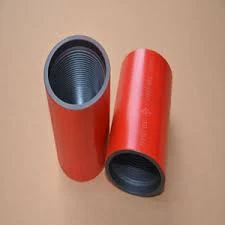- Afrikaans
- Albanian
- Amharic
- Arabic
- Armenian
- Azerbaijani
- Basque
- Belarusian
- Bengali
- Bosnian
- Bulgarian
- Catalan
- Cebuano
- Corsican
- Croatian
- Czech
- Danish
- Dutch
- English
- Esperanto
- Estonian
- Finnish
- French
- Frisian
- Galician
- Georgian
- German
- Greek
- Gujarati
- Haitian Creole
- hausa
- hawaiian
- Hebrew
- Hindi
- Miao
- Hungarian
- Icelandic
- igbo
- Indonesian
- irish
- Italian
- Japanese
- Javanese
- Kannada
- kazakh
- Khmer
- Rwandese
- Korean
- Kurdish
- Kyrgyz
- Lao
- Latin
- Latvian
- Lithuanian
- Luxembourgish
- Macedonian
- Malgashi
- Malay
- Malayalam
- Maltese
- Maori
- Marathi
- Mongolian
- Myanmar
- Nepali
- Norwegian
- Norwegian
- Occitan
- Pashto
- Persian
- Polish
- Portuguese
- Punjabi
- Romanian
- Russian
- Samoan
- Scottish Gaelic
- Serbian
- Sesotho
- Shona
- Sindhi
- Sinhala
- Slovak
- Slovenian
- Somali
- Spanish
- Sundanese
- Swahili
- Swedish
- Tagalog
- Tajik
- Tamil
- Tatar
- Telugu
- Thai
- Turkish
- Turkmen
- Ukrainian
- Urdu
- Uighur
- Uzbek
- Vietnamese
- Welsh
- Bantu
- Yiddish
- Yoruba
- Zulu
Understanding Tubing Coupling in Oil and Gas Industry Applications
Understanding Tubing Collars Essential Components in Oil and Gas Production
In the oil and gas industry, the extraction of hydrocarbons is a complex process that relies on various components to ensure efficiency, safety, and reliability. One of the key components in this process is the tubing collar. Understanding what tubing collars are, their functions, and their significance in drilling operations is crucial for anyone involved in this industry.
What is a Tubing Collar?
A tubing collar is a critical piece of equipment used in oil and gas wells. It is a type of coupling or connector that links two sections of casing tubing. Tubing is the pipe that carries oil or gas from the wellbore to the surface. The collar serves as a mechanical connection point, providing the necessary support and stability for the tubing string. Typically made from durable materials like steel, tubing collars are designed to withstand high pressure and aggressive environments found deep within the earth.
Types of Tubing Collars
There are several types of tubing collars, each serving unique purposes based on the specific needs of the well. Some common types include
1. Standard Tubing Collars These are the most widely used collars that connect two lengths of tubing. They are designed to facilitate the easy installation and removal of tubing during drilling operations.
2. Float Collars Float collars are equipped with one-way valves that prevent backflow of fluids into the well during the cementing process. They ensure that the cementing job is executed properly, providing a seal that protects the well and maintains its integrity.
3. Landing Collars Landing collars are designed to assist in the landing of downhole tools and equipment. They provide a seat for tools to rest against, ensuring they are properly positioned for operations such as drilling or completion.
4. Adapter Collars These collars are used to connect different sizes or types of tubing and casing to ensure compatibility and structural integrity throughout the wellbore.
Functions and Importance of Tubing Collars
tubing collar

Tubing collars play a vital role in the overall operation of oil and gas wells. Their primary functions include
- Structural Support Tubing collars provide the necessary reinforcement to maintain the integrity of the tubing string. When under pressure, they help prevent buckling and failure of the tubing.
- Facilitate Installation and Maintenance The design of tubing collars allows for easy installation and removal, which is critical during the drilling phase, especially when adjusting or replacing sections of tubing is necessary.
- Prevent Fluid Backflow Float collars, in particular, are essential for preventing the reversal flow of fluids, ensuring that the cement used in the wellbore remains in place, thereby enhancing well stability.
- Adaptation Since oil and gas wells can have varying conditions, the use of adapter collars makes it possible to connect different tubing sizes or types, enhancing the versatility of drilling operations.
Challenges and Considerations
Despite their robustness, tubing collars face challenges during their operational life. The corrosive nature of the fluids extracted, along with high pressures and temperatures within the well, can lead to wear and tear. Regular inspection and maintenance are crucial to ensure these components remain reliable.
Moreover, selecting the right type of tubing collar is vital. Compatibility with existing tubing, the specific conditions of the well, and the nature of the fluids being extracted must all be considered.
Conclusion
In summary, tubing collars are essential components in the oil and gas industry, serving multiple functions that enhance the efficiency and safety of drilling operations. Their ability to connect various sections of tubing, provide structural integrity, and prevent backflow makes them indispensable in well construction. As the industry continues to evolve and push the boundaries of technology, the innovation surrounding tubing collars is likely to advance, further enhancing their performance and reliability. Understanding these components is essential for industry professionals, ensuring operational success and the safety of those involved in the extraction of valuable resources.
-
Tubing Pup Joints: Essential Components for Oil and Gas OperationsNewsJul.10,2025
-
Pup Joints: Essential Components for Reliable Drilling OperationsNewsJul.10,2025
-
Pipe Couplings: Connecting Your World EfficientlyNewsJul.10,2025
-
Mastering Oilfield Operations with Quality Tubing and CasingNewsJul.10,2025
-
High-Quality Casing Couplings for Every NeedNewsJul.10,2025
-
Boost Your Drilling Efficiency with Premium Crossover Tools & Seating NipplesNewsJul.10,2025







